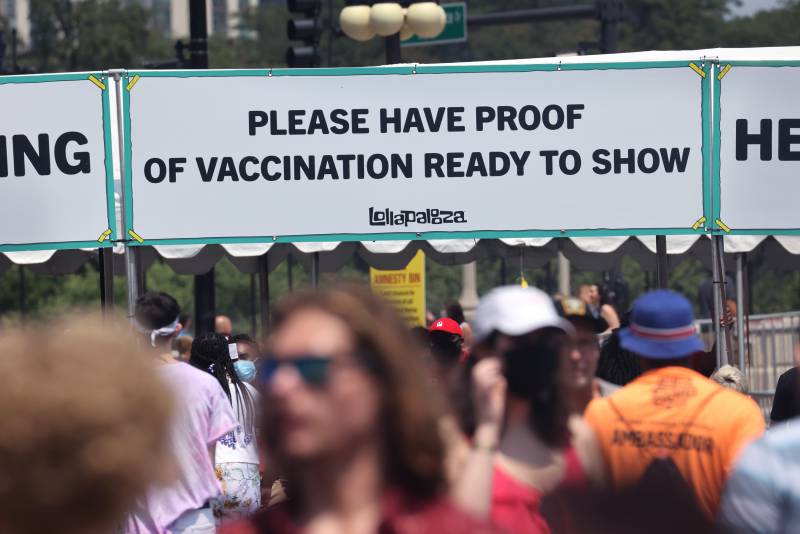While some of America’s most popular festivals—including Coachella, Burning Man and SXSW—have opted to postpone until 2022, many others are still forging ahead this year. COVID restrictions for attendees at each event vary and are at the discretion of the organizers. So, for example, while Napa’s BottleRock will require proof of vaccination or a negative COVID test, Outside Lands is—for the moment, at least—merely saying it “will follow the recommended health and safety guidelines put forth by the authorities.” Stern Grove says it will have a reservation-only policy and a perimeter, but no requirement to show vaccine status at this time. It is unclear what restrictions will be in place for performers.
As for music venues, in California at least, the National Independent Venue Association (NIVA) reports that most of the music venues checking vaccine cards are also accepting negative COVID tests.
While Parada claimed that his decision to not get vaccinated was a medical one, he also shared clear anti-vax opinions later in his post. “I do not find it ethical or wise,” he wrote, “to allow those with the most power (government, corporations, organizations, employers) to dictate medical procedures to those with the least power.” Parada continued: “If it looks like half the population is having a shockingly different reaction to these jabs than was expected—it’s probably because their life experiences have actually been shockingly different.”
As the music industry scrambles to bring back live music, the very least fans and musicians should be doing before heading out to venues is getting vaccinated and/or checking their COVID status regularly with tests. Even then, an abundance of caution should still be exercised. The Netherlands’ Verknipt festival, which took place in mid-July, offers a cautionary example. The two-day outdoor festival required proof of vaccine or a negative test to enter, but still led to 1,050 COVID infections—5% of attendees caught the virus.
Make no mistake, the social and personal freedoms we have successfully wrangled back in recent months are a direct result of the vaccine rollout. What most threatens those freedoms now is the highly transmissible delta variant which, data proves, vaccines protect against. (“The rate of breakthrough cases reported among those fully vaccinated is well below 1% in all reporting states,” according to the New York Times.) The larger barriers to the freedom of immunocompromised people aren’t COVID safety measures—they’re the dangers posed by a virus that spreads further and faster the less people are vaccinated.


